AI on Film: Where Sci-Fi Meets Reality in the Latest Releases
Introduction
The relationship between artificial intelligence (AI) and cinema is a fascinating exploration of cultural fears, aspirations, and ethical dilemmas. As filmmakers increasingly incorporate AI into their narratives, the depiction of intelligent machines vacillates between dystopian warnings and optimistic portrayals. The latest cinematic offerings continue to blur the line between science fiction and reality, prompting both excitement and discomfort among audiences. This article delves into the portrayal of AI in contemporary films, examines the technological advancements that have made these representations possible, and evaluates the implications for viewers and society at large.
1. The Cinematic Landscape of AI
The evolution of AI in film can be traced back to early cinema, with iconic examples such as Fritz Lang’s "Metropolis" (1927) and Stanley Kubrick’s "2001: A Space Odyssey" (1968). These films laid the groundwork for themes of machine sentience, human identity, and existential dread.
1.1 Historical Context
Historically, AI films have oscillated between two main tropes: the benevolent helper and the malevolent overlord. As technology has rapidly advanced, so have the complexities of these portrayals. Modern films such as "Ex Machina" (2014) and "Blade Runner 2049" (2017) challenge audiences to grapple with not just what AI could become but also what it means to be human.
1.2 Recent Releases
In recent years, films like "Free Guy" (2021) and "The Matrix Resurrections" (2021) have once again piqued public interest in AI, positing new questions about agency, reality, and virtual existence. As digital technologies become more sophisticated, the narratives surrounding AI evolve, reflecting contemporary societal anxieties about surveillance, autonomy, and data privacy.
2. AI’s Technological Realities
As filmmakers craft their narratives around AI, they are often inspired by real-world innovations. Today’s AI significantly differs from its predecessors, thanks in part to breakthroughs in machine learning, neural networks, and natural language processing.
2.1 Machine Learning and Neural Networks
Machine learning enables systems to learn from data, making predictions, and improving performance over time. Neural networks, particularly deep learning architectures, have revolutionized fields ranging from image recognition to language translation.
These advancements are reflected in films that portray AI as layers of complex algorithms, raising questions about the nature of consciousness and emotion in non-human entities.
2.2 Natural Language Processing (NLP)
Natural Language Processing has transformed human-computer interactions, allowing machines to understand and generate human language. The implications of this technology are profound, seen in films where AI mimics human speech convincingly, further complicating the viewer’s perception of agency and emotion.
3. Thematic Explorations in AI-Driven Cinema
3.1 The Human-AI Relationship
A recurring theme in recent AI films is the intricacies of human relationships with intelligent machines. Movies like "Her" (2013) and "Still Alice" (2014) explore emotional connections, raising ethical questions about companionship and dependence on technology for fulfillment.
3.2 Identity and Consciousness
Films like "Westworld" (2016) and "Altered Carbon" (2018) probe into the questions of identity and consciousness. As characters grapple with the reality of digital selves and replicants, viewers are invited to reconsider what it means to be human in an age increasingly defined by technology.
3.3 Dystopian Futures vs. Utopian Visions
Contemporary films often oscillate between dystopian and utopian visions of AI. For instance, "I, Robot" (2004) presents a cautionary tale of a future ruled by AI, while films like "Big Hero 6" (2014) depict the warm, protective potential of intelligent machines. This dichotomy reflects our societal struggles with trust and optimism surrounding technology.
4. The Ethical Dilemmas of AI in Film
Cinema does not merely reflect technological advancements but also problematizes them. The portrayal of AI forces audiences to confront ethical dilemmas rooted in technological agency, autonomy, and accountability.
4.1 The Trolley Problem and AI Decision-Making
Several films engage with moral dilemmas akin to the "Trolley Problem," prompting discussions about the ethics of decision-making in AI. Movies like "The Circle" (2017) spark dialogues on surveillance and the implications of data-driven choices, raising questions about agency and responsibility.
4.2 Depiction of AI and Representation
How AI is depicted in film has consequences for societal attitudes. The portrayal of intelligent machines as either benevolent or malevolent has tangible effects on public sentiment towards real-world AI technologies.
5. The Future of AI in Cinema
As technology continues to evolve, so too will the representation of AI in film. With advances in virtual reality (VR), augmented reality (AR), and hyper-realistic CGI, filmmakers can create immersive experiences that challenge perceptions of reality.
5.1 Virtual Reality and AI
The potential for VR technologies to incorporate AI leads to opportunities for viewer interaction and immersion. Films that engage audiences in this way, such as "Ready Player One" (2018), hint at future landscapes where AI and immersive storytelling merge.
5.2 AI in Filmmaking
AI is increasingly being utilized behind the scenes in film production for everything from scriptwriting to video editing. This self-reflexive use of technology prompts questions about the artistic integrity of future cinema, raising concerns regarding the loss of human touch in storytelling.
Conclusion
The intersection of AI and cinema reflects societal attitudes and anxieties about technology, autonomy, and identity. Recent films offer not only a representation of current technological realities but also provoke critical dialogues about the ethical implications of AI in our lives. As we navigate the future, both filmmakers and audiences must grapple with these themes, as the line between science fiction and reality continues to blur.
References
- Kubrick, S. (1968). 2001: A Space Odyssey. MGM.
- Lang, F. (1927). Metropolis. Ufa.
- Garland, A. (2014). Ex Machina. A24.
- Villeneuve, D. (2017). Blade Runner 2049. Warner Bros.
- Wright, S. (2021). Free Guy. 20th Century Studios.
- Wachowski, L., & Wachowski, A. (2021). The Matrix Resurrections. Warner Bros.
- Scott, R. (1982). Blade Runner. Warner Bros.
- Jonze, S. (2013). Her. Warner Bros.
- Nolan, C. (2010). Inception. Warner Bros.
- Wright, H. (2014). Big Hero 6. Walt Disney Animation Studios.
In exploring the landscape of AI in film, we not only gain insights into storytelling and myth-making but also confront the societal implications of our ever-evolving relationship with technology. The narrative of AI continues to unfold, both on screen and in the real world, keeping the dialogue around ethics, identity, and technology alive.















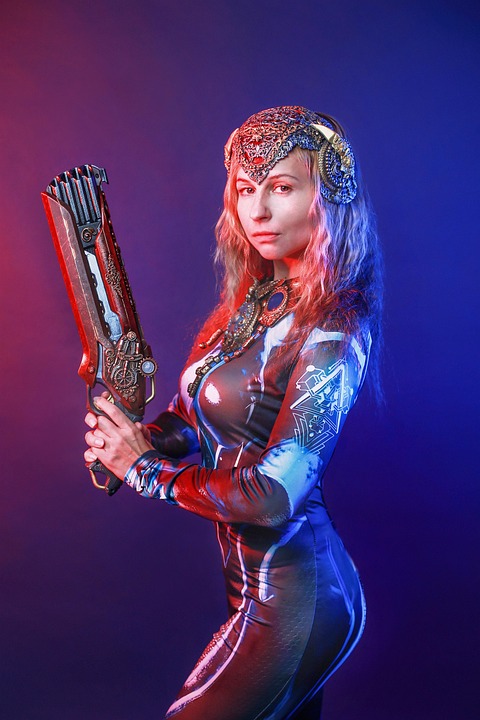
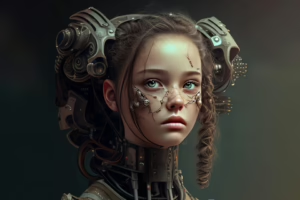
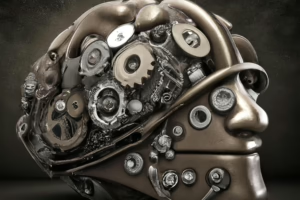
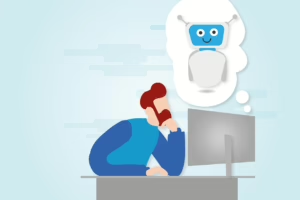
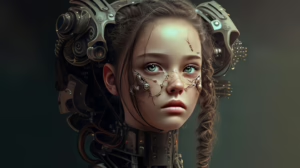
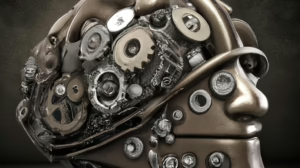
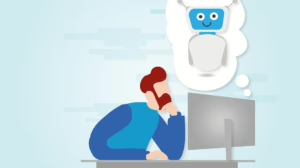




Add Comment